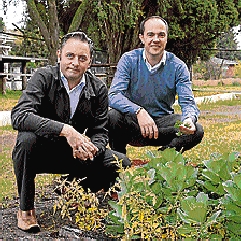
By CAMERON LUCADOU-WELLS and ALECIA PINNER
CHILDREN as young as primary school-age are ‘dropping out’ to care for afflicted parents, says a Noble Park-based principal.
David Rothstadt said that in his eight-year tenure at Noble Park Primary School he had known of several pupils who have refused to come to school.
One of the major causes was they felt they needed to stay home to tend parents with substance abuse or physical and mental health issues, he said.
“It’s more likely in grade 5 and 6 kids who have this separation anxiety. They are old enough to perceive their parents aren’t well and need their support.”
Mr Rothstadt said schools could provide counselling to parents or refer them to welfare agencies but there needed to be more targeted support services.
His comments follow calls by Mission Australia for the state government to provide $16million for a statewide rollout of
a trial project that has re-engaged children who refuse to go school.
In the first year of the project, organiser Jon McGregor found 28 children enrolled at 10 Frankston primary schools but who had dropped out.
From his early statistics, he estimates there could be about 71 children in Greater Dandenong who refuse to go to school. The state figure is about 2800.
The program visited the children’s homes and set up ‘classes’ at a Scout hall. The children learnt gardening, how to use an iPad library and worked with tradesmen to help develop literacy and numeracy skills and confidence.
The team, including high school teacher Rowland Richardson, spent about six months working on each case before pupils were gradually reintroduced to school.
After 12 months, 65 per cent of the children were re-engaged with a form of education.
Education Minister Martin Dixon said the government provided $335million for vulnerable children to help break the “cycle of disadvantage”, including $1million to investigate ways to reach out to students struggling in mainstream schools.






